
Located in the heart of the southern Drakensberg, the Mzimkulu Vulture Hide is fitted with one-way glass designed for clear photography and allows up to six guests to comfortably view and photograph endangered vultures, as well as other birds, for a good cause. Exquisite mountainous backdrops, comfortable seating, darkened windows and a few electrical plug points for recharging camera batteries and phones make for an enjoyable experience. The hide is also equipped with educational material to ensure visitors leave having learnt more about conservation and wildlife in the region.
CONSERVATION PARTNERSHIP
The Mzimkulu Vulture Hide forms part of Wildlife ACT’s Southern Drakensberg Conservation Project and has been made possible by a collaborative effort between Wildlife ACT and Riverlea Farm. The primary objective of this initiative is to provide the Southern Drakensberg with a sustainable safe feeding site for vultures. Important partners include Ezemvelo KZN Wildlife, Project Vulture, Drakensberg Conservation Initiative, Bearded Vulture Recovery Programme and the Endangered Wildlife Trust. The creation of the hide has been made possible by Invicta Wildlife, CHEP, and European Outdoor Conservation Association. The support of local Underberg farms has also been crucial to making this important Vulture Safe Feeding Site possible.
THE IMPORTANCE OF VULTURE CONSERVATION IN THE REGION
This story is from the March 08, 2024 edition of Farmer's Weekly.
Start your 7-day Magzter GOLD free trial to access thousands of curated premium stories, and 9,000+ magazines and newspapers.
Already a subscriber ? Sign In
This story is from the March 08, 2024 edition of Farmer's Weekly.
Start your 7-day Magzter GOLD free trial to access thousands of curated premium stories, and 9,000+ magazines and newspapers.
Already a subscriber? Sign In

Agripreneur wins top award for butternut coffee
Bloemfontein-based agripreneur Chantelle de Bruyn has achieved global recognition.
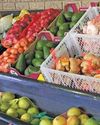
Final fresh produce inquiry pins low level of transformation on farming environment
The Competition Commission released its final report on the Fresh Produce Market Inquiry in mid-January, maintaining that transformation in the industry was being impeded by a lack of support for emerging farmers.
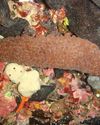
Illegal fishing in Australia reveals market gap for farmed sea cucumber
Illegal fishing practices in Australia have revealed a large market opportunity for sea cucumber farming.

An introduction to the Ford Ranger Tremor
In December 2024, the CAR magazine team received the Ford Ranger Tremor to accompany them through the festive season and into the new year. Oliver Keohane looks at what the Tremor is all about.
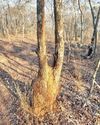
A farmer's experience with bush encroachment
Farmer David Addenbrooke has worked in the Zimbabwean beef industry for around four decades. Here, he relates his experience with bush encroachment and offers farmers some advice on battling this scourge.
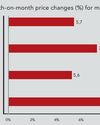
Good rains boost SA's summer grain crop prospects
This week, Absa AgriBusiness analyses several market dynamics and shares its expectations for local grain and oilseed prices over the coming months.
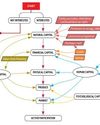
A self-help tool for getting young people engaged in agriculture
The active engagement of the youth in agriculture is pivotal to the sustainability and growth of the sector. Empowering them with the necessary support is key to nurturing future farmers who are equipped to overcome future challenges like the effects of climate change.Dr Primrose Madende, researcher at the Department of Agricultural Economics at the University of the Free State
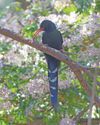
Rallying to the cackle of this raucous bird
The gregarious and territorial Green Wood-hoopoe, also known as the Red-billed Wood-hoopoe, is extremely vocal and is often heard before it is seen. And for very good reason,

SA coffee lovers can expect price increase
South African coffee prices are expected to spike sharply in the foreseeable future because of failed crops in the country’s main importing countries: Brazil and Vietnam.
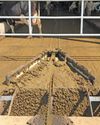
Paving the way for a greener dairy industry
The dairy industry is often criticised for its environmental impact, but a new innovation called DESTiny aims to empower farmers to take control of their carbon footprints. Riana Reinecke, the tool's developer, explained to Glenneis Kriel how it works and how farmers can benefit from it.